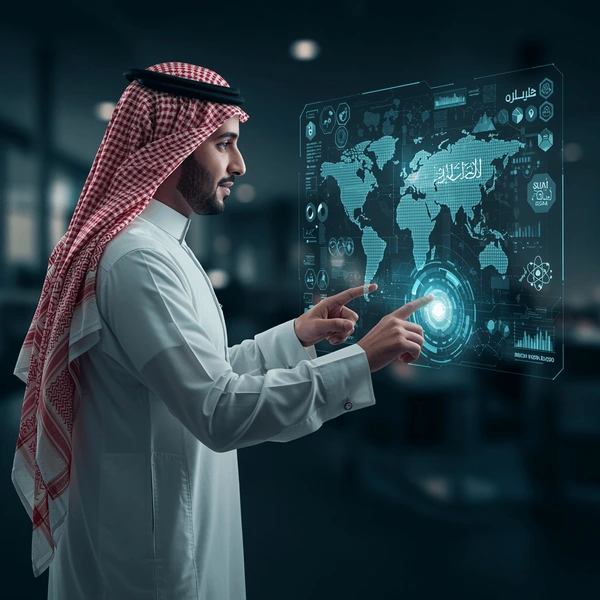As artificial intelligence (AI) continues to reshape the global economy, security systems, education, and labor markets, the Arab world finds itself at a pivotal juncture—one that may define its future for generations to come. While developed nations accelerate AI research, policy development, and infrastructure integration, much of the Arab region remains on the sidelines, grappling with insufficient investment in technological innovation, limited AI talent pools, and fragmented policy frameworks.

This growing gap poses a real and urgent threat: without strategic intervention
Arab nations risk becoming passive consumers of foreign AI technologies rather than active contributors to their design and governance. The implications are profound. Economically, automation could displace millions of jobs across both public and private sectors, particularly in countries where youth unemployment is already dangerously high.
Politically, the misuse of AI for surveillance and digital control could entrench authoritarianism, threatening civil liberties and deepening societal divides
Culturally and ethically, the dependence on imported AI systems—often trained on foreign datasets and embedded with external values—could erode local identities and marginalize the region’s rich linguistic and cultural diversity.
Moreover, the lack of AI literacy and digital infrastructure puts Arab societies at risk of being digitally colonized
With their data extracted, analyzed, and exploited by external powers. Yet, despite these dangers, there is still hope. The Arab world is home to a young, dynamic population eager to engage with the digital age.
With the right investment in STEM education, regional AI research hubs, ethical guidelines aligned with Arab values, and policies
That foster innovation while protecting rights, the region can pivot from vulnerability to leadership. Countries like the UAE and Saudi Arabia have already taken early steps toward AI integration, but a broader, more inclusive strategy is urgently needed across the region.
“The question is no longer whether AI will shape the Arab future—it will—but whether the region will shape AI on its own terms, or be shaped by others. The time to act is now, before this historic opportunity becomes a permanent disadvantage”.






